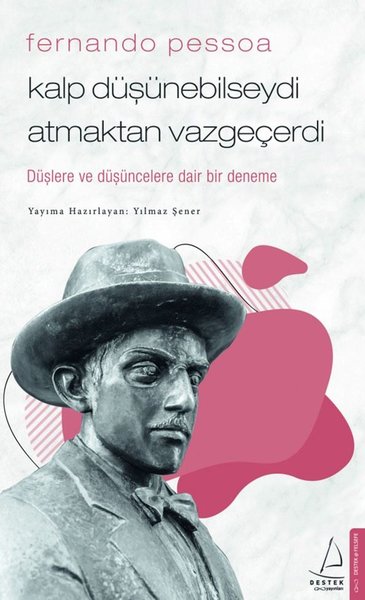
“Hepimiz kendi dışımızdaki koşulların tutsağıyız.” Fernando Pessoa kendini farklı kişiliklere bölerek, benliğinde sustuklarını dile getirir. Hangi cümlesini kaldırırsanız altında ona dair bir yalnızlık biçimiyle karşılaşırsınız. Pessoa’nın kelimelerle ördüğü kendine özel o yalnızlık biçimi, tanyeri ağarırken ortaya çıkan serinlik gibi hafif bir ürperti taşır. Proust gibi Pessoa da hayatın en dar şeritlerinde yürür; içine düşme pahasına derin boşlukların kıyısında dolanır. Hayatının bir anında, bir zihin çakımında bir şeyler görür ve hayatı boyunca bunun ne olduğunu bulmaya çalışır. Hemen her eserine derin bir şekilde nüfuz eden Pessoa, edebiyatı kendine sığınılacak bir liman olarak seçmiş ve bu süre boyunca ortaya çıkardığı eserlerle sığındığı limanına demir atmıştır. Daha küçük bir çocukken kendisine çizilen yoldan gitmesi adeta kaderi olan Pessoa, hayatın içinde olmasına rağmen onu dışarıdan net bir şekilde görebilen nadir yazarlardandır.
Author

Fernando António Nogueira Pessoa was a poet and writer. It is sometimes said that the four greatest Portuguese poets of modern times are Fernando Pessoa. The statement is possible since Pessoa, whose name means ‘person’ in Portuguese, had three alter egos who wrote in styles completely different from his own. In fact Pessoa wrote under dozens of names, but Alberto Caeiro, Ricardo Reis and Álvaro de Campos were – their creator claimed – full-fledged individuals who wrote things that he himself would never or could never write. He dubbed them ‘heteronyms’ rather than pseudonyms, since they were not false names but “other names”, belonging to distinct literary personalities. Not only were their styles different; they thought differently, they had different religious and political views, different aesthetic sensibilities, different social temperaments. And each produced a large body of poetry. Álvaro de Campos and Ricardo Reis also signed dozens of pages of prose. The critic Harold Bloom referred to him in the book The Western Canon as the most representative poet of the twentieth century, along with Pablo Neruda.